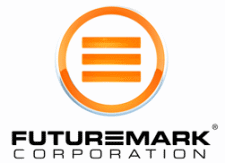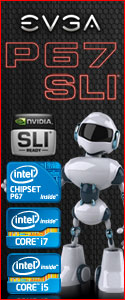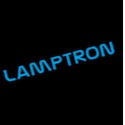The OCZ Synapse Cache SSD comes packaged in a blue and black themed box which describes some of the basic features on both the front and back. There is mention of the included 3.5 to 2.5 adapter which is used to install the drive into a traditional 3.5 drive bay. There is no SATA cable or SATA power adapter included. On the back of the box is a multilingual description on how caching your hard drive provides an affordable way to enhance performance.
 |
 |
 |
 |
Opening the box we find the Synapse Cache securely nestled in a firm foam enclosure with the 2.5 to 3.5 adapter sitting on top. Included is the user manual and the “My SSD is Faster Than Your HDD” sticker that OCZ has been tossing in their SSD boxes for quite a while now.
 |
 |
 |
 |
The front of the Synapse Cache has a sticker applied with the OCZ and Synapse branding. The back of the drive has the bar code information and the Dataplex License Key you will need to download and install the software.
 |
 |
Features
- Delivers up to 80,000 IOPS
- Bandwidth up to 550 MB/s
- SSD Cache capacity up to 64GB
- Manages and accelerates full HDD capacity
- Maximizes performance with SATA 6 GB/s interface
- Unleashes the full potential of today’s leading platforms
- TRIM support
- Easy-to-deploy 2.5 solution for multiple drive bays
- Integrated Dataplex™ Caching Software
- Intelligently manages HDD and SSD Simultaneously
- “Hot” data managed on Synapse SSD for highest performance, access, and bandwidth
- “Cold” data routed to HDD for highest capacity usage
- No data migration or OS installation required
Specifications
| Physical | |
| Cache Capacities (IDEMA) | 64GB (128GB Version, 32GB (64GB Version) |
| NAND Components | 2Xnm Multi-Level Cell (MLC) |
| Interface | SATA III / 6Gbps Backwards compatible w/SATA II / 3Gbps |
| Form Factor | 2.5 Inch |
| NAND Controller | SandForce® 2281 |
| Dimensions (LxWxH) | 98×69.9×9.1 mm |
| Weight | 79g |
| Reliability/Protection/Security | |
| MTBF | 2 million hours |
| ECC Recovery | Up to 55 bits correctable per 512-byte sector (BCH) *varries depending on exact configuration |
| Data Encryption | 128-bit and 256-bit AES-compliant |
| Product Health Monitoring | SMART Support |
| Environmental | |
| Power Consumption | idle: 1.5W Active: 2.7W |
| Operating Temperature | 0°C ~ 70°C |
| Ambient Temperature | 0°C ~ 55°C |
| Storage Temperature | -45°C ~ 85°C |
| Shock Resistance | 1500G |
| Certifications | RoHS, CE, FCC |
| Compatibility | |
| Serial ATA (SATA) | Compliant w/SATA International Organization: Rev. 3.0 compliant w/ATA/ATAPI-8 NCQ |
| Operating System | Windows 7 32-bit and 64-bit |
| Power Requirements | Standard SATA Power Connector |
| System Integration | Bundled with 3.5 inch desktop adapter bracket |
| Additional Features | |
| Performance Optimization | TRIM (requires OS support), Drivers |
| Software | Dataplex™ Caching Software |
| Service and Support | 3-Year warranty, Toll-Free Tech Support, Forum Support |
System Requirements
A couple items of note on the above features/specifications, first being the cache capacities being half of the total drive size. The reason for this is best explained with a snippet from OCZ’s FAQ’s on the Synapse:
“The 50% NAND overprovisioning used on all Synapse models (translating into 32GB and 64GB cache capacities) is maintained as a performance feature to increase the lifespan of the drive, and accommodate the writing of “hot” user data. Since the Synapse acts as a cache for file/program copies vs. typical data storage, the “free” capacity will be sufficient to deliver the full benefits of Synapse for any personal usage pattern.”
The SandForce 2281 NAND is used in the Synapse Cache SSD, a good stable choice which should work quite well in this application. The SATA 6 Gbps interface will only add to the effectiveness of the Synapse, but it is backward compatible if you own a system that is still using a SATA 3 Gbps interface.
We have heard some complaints about the licensing procedure for the Dataplex software as it pertains to making hardware changes to your computer. If more than two hardware items are changed, the software will cease to work causing you contact OCZ support to reset the license key. This issue seems to be more of a user error than a cumbersome implementation by OCZ and can be avoided by simply uninstalling the Dataplex software BEFORE making the changes to your system. If I am reading the documentation correctly, uninstalling the software will release the license (via the internet) and make it available to load again on your new or upgraded computer.


 Posted in
Posted in 





